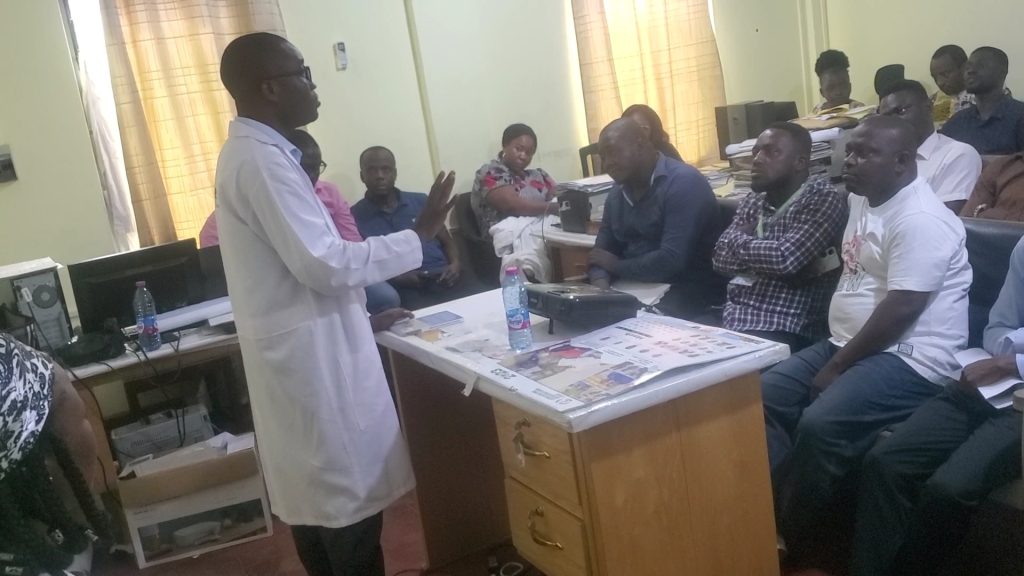
Many players in the health field have varying definitions and explanations of what Primary Health Care is over the years. One to fall on in my deliberation is a definition put together by these two world bodies: the World Health Organization and the United Nation Children’s Fund as penned below;
Primary Health Care is a whole-society approach to health that aims at ensuring the highest possible level of health and well-being and their equitable distribution by focusing on people’s needs and as early as possible along the continuum from health promotion and disease prevention to treatment, rehabilitation and palliative care, and as close as feasible to people’s everyday environment.
In this lengthy definition are phrases that highlight practical meaning of what primary health care is and I am going to bring out for our thinking together in this write-up.
Before moving on, permit me to say this; as a nurse clinician who works in a teaching hospital (tertiary healthcare establishment), what have I to do with Primary Health care system? but, with my few years of working experience, I have quite discovered that many people are really suffering from illnesses they are not supposed to have in the first place.
An interesting question is, why do we have a system in place that makes it easier for people to lose lives, livelihood or breadwinners to health problems easily preventable? Why do we spend so much resources on a health care system that seeks to solve health problems, when clearly, there is opportunity to invest in an alternative that could prevent problems or reduce the possibility of more serious problems?
Primary health care is the best form of healthcare in the world and it’s adopted and effectively implemented by nations rated to have great healthcare systems. The irony is that, relatively, it’s less expensive to implement.
Prevention and Maintenance
Back to the definition of Primary health care; the first practical meaning is that primary healthcare is mainly about disease prevention, early treatment of illnesses and overall health maintenance; that is the true essence of this healthcare module.
We as humans are better placed to prevent a lot of unfortunate incidences long before they happen. One of such is health problem. Many diseases are directly linked to an individual’s choice of lifestyle and it requires deliberate efforts to prevent them. Daily activities such as the food we eat, the water and beverages we take in, rest or sleep habit, physical activities etc. have direct influence on the kind of diseases one may be at risk of getting.
Sickness is inevitable, even the most health-conscious individual at a point could get in trouble with ill-health. When we fail to put in place measures to ensure ill-health is identified and treated early at the minor stage, we ostensibly put in place structures, where people have to get diseases otherwise easily preventable.
A Whole Society Approach
Another important point worth noting in the definition of P.H.C. is that, it involves a whole-society. To achieve the practical meaning of PHC in any big sense, the general public must be actively involved. The recipient of this type of healthcare-the general public cannot be sidelined as mere clients. They ought to be regarded the most important partners because that’s exactly what they are and they have a central role to play if we are to achieve an effective working primary health care system.
Unlike secondary or tertiary healthcare service which requires well equipped facility including highly trained professionals, primary healthcare services do not require such expensive establishment because it involves entire society at basic levels of healthcare, playing various roles geared towards maintaining highest health status.
In light of this, one can say the society or the home itself forms part of the ‘edifice’ of P.H.C.
Highest Level of Healthcare
Another key element in the definition of primary healthcare is that, it’s the highest possible level of wellbeing. One may arguably refer to sophisticated medical treatments available at the secondary or tertiary level as the highest form of healthcare.
But consider it this way; a system that frequently monitors and seeks to prevent disease and its complications or maintain overall good health by focusing on the factors that make people sick and eliminate/mitigate them and another which seeks to take out existing health problem or correct the harms of diseases, which is more preferable?
No matter how best a hospital is rated in terms of its services, no one enjoys spending days on hospital bed with the hope of getting well again. In some cases, treatment is not without some serious risks.
Everyone would love to live and enjoy life in an excellent health and that is what primary healthcare is all about through health promotion, disease prevention and protection against disease complications.
Equitable Distribution of Health
The last but not the least point in the definition is that, P.H.C. makes equitable distribution of healthcare delivery possible. This type of healthcare approach, bridges the wide gap that often exists between the rich and poor. This assertion can be true because the basic nature of P.H.C. service makes affordability, accessibility almost the same irrespective of one’s economic standing. At the same time, offering the highest health benefit for all.
For instance, physical fitness is a vital tool of an effective preventive or primary healthcare. The rich man who understands its significance pays for and frequents the gym. The one who cannot afford does not need to worry about cost of gym services. He’s only required to hit the road for a run or jog.
In this situation, both the poor and the rich would achieve the same healthy results. The burden does not lie in financial constraint, rather educating everyone (rich and poor) to appreciate the importance of making body fitness a habit.